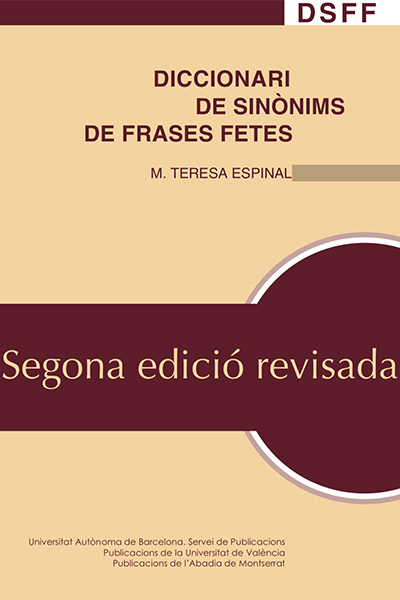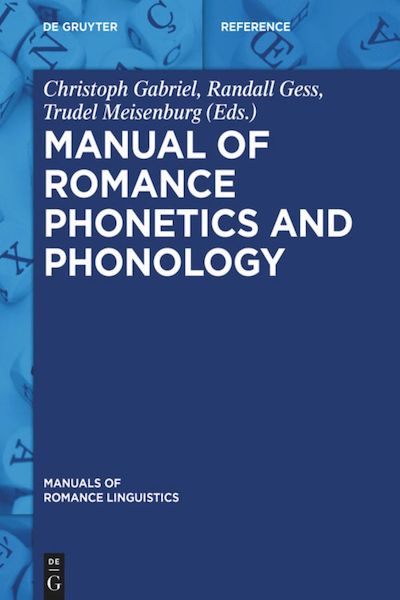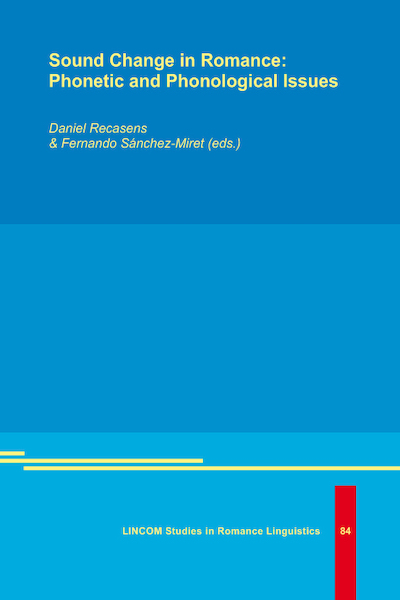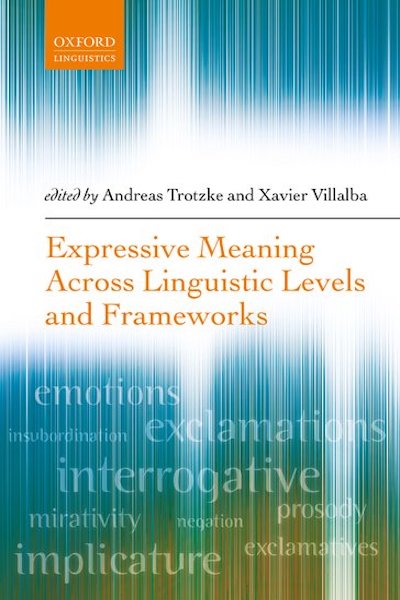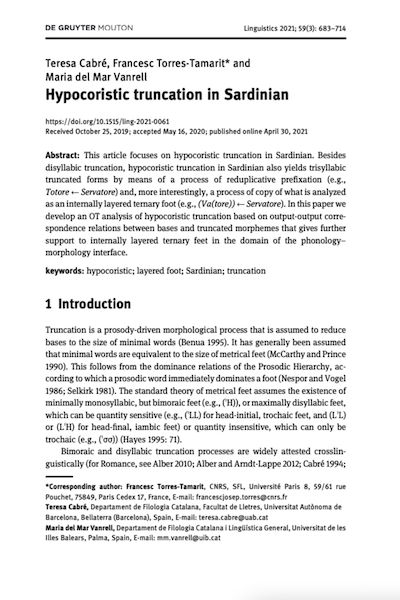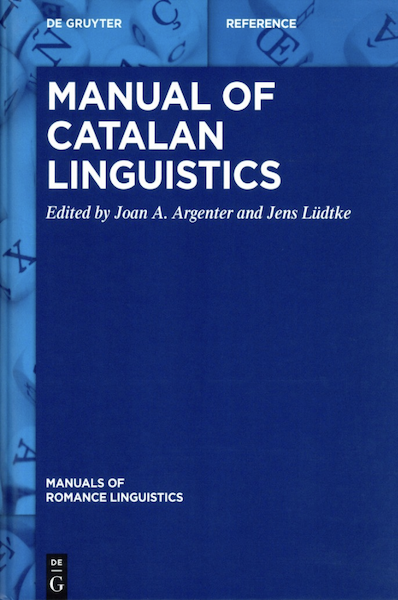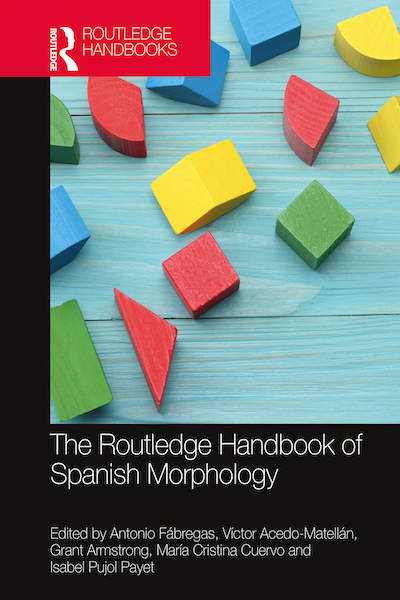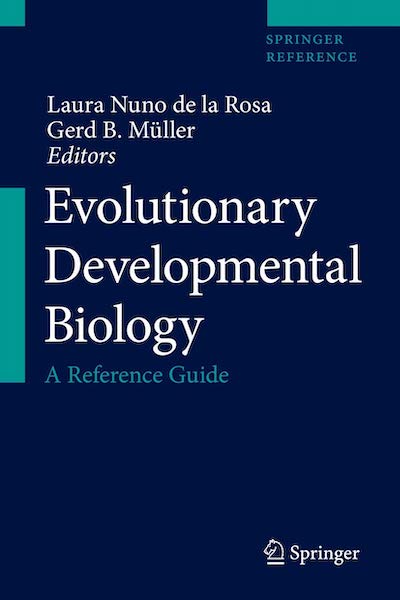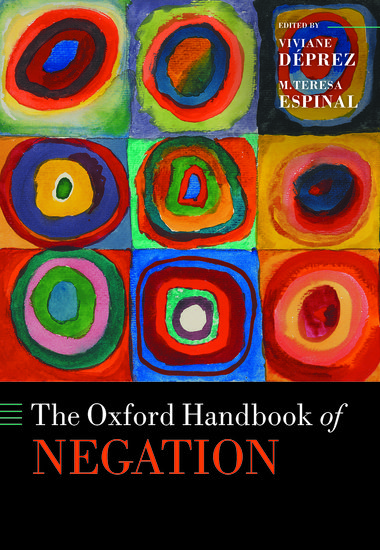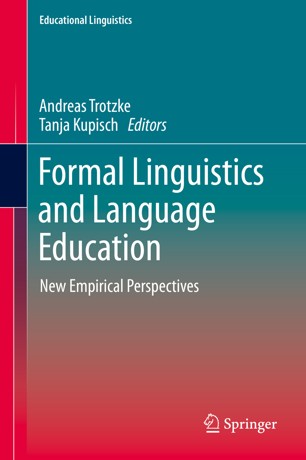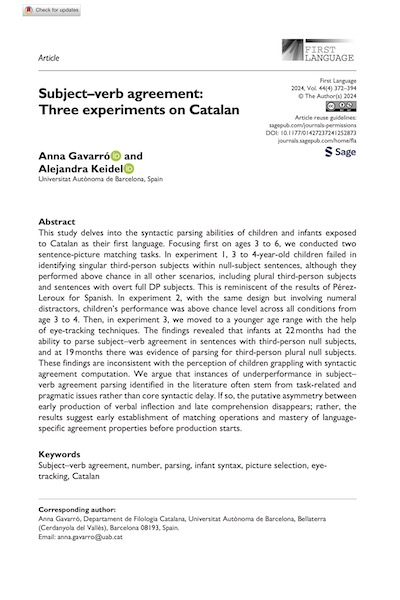
Autors:
Anna Gavarró & Alejandra KeidelTítol:
Subject-verb agreement: Three experiments on CatalanEditorial: First Language (Sage Journals)
Data de publicació: Agost, 2024
Pàgines: 22
Text complet
This study delves into the syntactic parsing abilities of children and infants exposed to Catalan as their first language. Focusing first on ages 3 to 6, we conducted two sentence-picture matching tasks. In experiment 1, 3 to 4-year-old children failed in identifying singular third-person subjects within null-subject sentences, although they performed above chance in all other scenarios, including plural third-person subjects and sentences with overt full DP subjects. This is reminiscent of the results of Pérez-Leroux for Spanish. In experiment 2, with the same design but involving numeral distractors, children’s performance was above chance level across all conditions from age 3 to 4. Then, in experiment 3, we moved to a younger age range with the help of eye-tracking techniques. The findings revealed that infants at 22 months had the ability to parse subject–verb agreement in sentences with third-person null subjects, and at 19 months there was evidence of parsing for third-person plural null subjects. These findings are inconsistent with the perception of children grappling with syntactic agreement computation. We argue that instances of underperformance in subject–verb agreement parsing identified in the literature often stem from task-related and pragmatic issues rather than core syntactic delay. If so, the putative asymmetry between early production of verbal inflection and late comprehension disappears; rather, the results suggest early establishment of matching operations and mastery of language-specific agreement properties before production starts.

